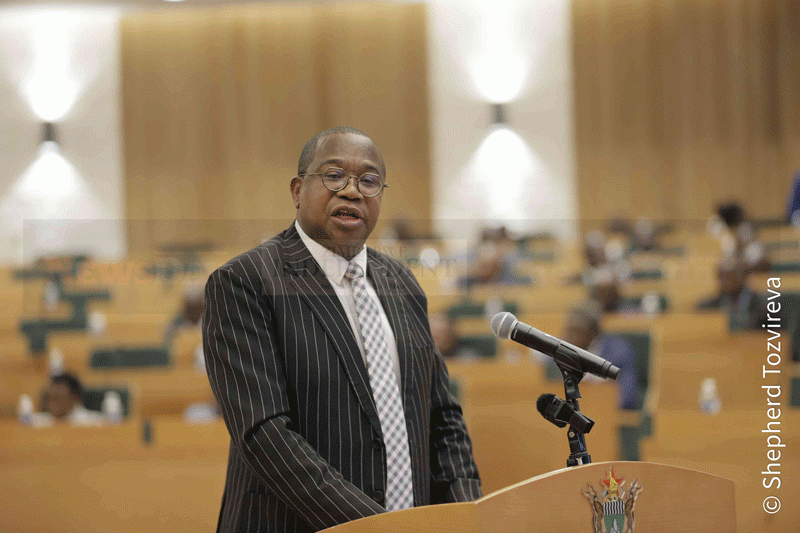
FINANCE minister Mthuli Ncube's 2024 Mid-Term Budget and Economic Review statement, presented to Parliament on Thursday last week aimed to paint a picture of cautious optimism amid Zimbabwe's significant economic challenges.
However, a closer analysis reveals concerning trends and glaring omissions that cast doubt on the nation's economic trajectory for the remainder of the year and beyond.
The most striking revelation in the minister's speech was the significant downward revision of Zimbabwe's economic growth forecast for 2024. Ncube stated, "The domestic economy is now projected to grow by 2% in 2024, down from the 2024 National Budget projection of 3,5%."
This 1,5 percentage point reduction is primarily attributed to the “more severe than expected impact of the El Niño-induced drought on agriculture output”.
This downturn in agricultural production has far-reaching implications for food security, rural livelihoods and the broader economy. The minister's admission that there is a "projected shortfall in local grain production of 764 000MT against a national grain requirement of 2,2 million MT" underscores the severity of the situation.
While government has declared a state of national disaster and outlined response measures, including a "Food Deficit Mitigation Programme" and "Cash for Cereal Programme," the effectiveness of these interventions remain to be seen.
The review lacks detail on how these programmes will be funded and implemented, raising questions about government's ability to address the looming food crisis effectively.
The introduction of the Zimbabwe Gold (ZiG) currency in April 2024 was touted as a stabilising measure. Ncube reported that "ZiG month-on-month inflation remained stable at 0% in June from -2,4% in May 2024”.
- Awards target married couples
- Budget dampens workers’ hopes
- Govt issues $24 billion Covid-19 guarantees
- Letter to my People:They have no answers for Nero’s charisma
Keep Reading
However, this short-term stability masks deeper structural issues within the economy. The frequent currency changes in recent years have eroded public trust in the monetary system and it is unclear whether the ZiG will fare any better in the long term.
Ncube’s optimistic outlook on inflation, stating that “inflationary pressures are expected to remain subdued” seems at odds with the reality faced by many Zimbabweans grappling with rising living costs. The review fails to address the widening gap between official inflation figures and the cost of living experienced by ordinary citizens.
While the minister reported a modest current account surplus of US$19,2 million in the first half of 2024, this figure pales in comparison to the country's substantial external debt and ongoing foreign currency shortages.
The reliance on diaspora remittances, which grew significantly by 16,5% to US$1,2 billion, highlights the fragility of Zimbabwe's foreign currency inflows. This dependence on remittances raises questions about the sustainability of the country's economic model and its vulnerability to external shocks.
The review's treatment of social welfare programmes appears inadequate given the scale of poverty and food insecurity in the country. While Ncube mentioned that ZiG243 million was disbursed to the Public Service, Labour and Social Welfare ministry during the first half of the year, this figure seems insufficient to address the needs of millions of vulnerable Zimbabweans. The lack of a comprehensive strategy to combat poverty and inequality is a glaring omission in the review, especially considering the compounded effects of drought and economic instability on the most vulnerable segments of society.
Ncube highlighted ongoing infrastructural projects, particularly in road construction and rehabilitation. However, the review lacks detail on how these projects will stimulate economic growth or improve the lives of ordinary Zimbabweans in the short term. While infrastructural development is crucial for long-term economic growth, the immediate benefits to the population struggling with basic needs are not clearly articulated.
Notably absent from the review was a comprehensive strategy to address Zimbabwe's crushing external debt burden, which stands at ZiG168,5 billion according to Ncube.
The lack of a clear debt resolution plan continues to hinder the country's access to international finance and investment, limiting its ability to fund critical development projects and social programmes.
Without addressing this fundamental issue, Zimbabwe's economic recovery remains on shaky ground.
The review also failed to address the ongoing brain drain and skills shortage facing the country, issues that are crucial for long-term economic development. The absence of strategies to retain skilled professionals and attract diaspora talent back to Zimbabwe is a significant oversight, given the importance of human capital in driving economic growth and innovation.
To truly consolidate economic transformation, as the review's title suggests, Zimbabwe needs to address several fundamental issues. A clear strategy for engaging with international creditors and resolving the external debt crisis is essential to unlock much-needed financial resources. Given the impact of drought, there is an urgent need for investment in climate-resilient agricultural practices and water management systems to ensure food security and protect rural livelihoods.
While the ZiG shows early promise, long-term measures to build confidence in the local currency are crucial. This includes maintaining fiscal discipline, improving transparency in monetary policy, and building up foreign currency reserves.
A more robust and well-funded social protection system is needed to shield vulnerable populations from economic shocks and ensure that economic growth benefits all segments of society.
Furthermore, the economy remains overly dependent on primary commodity exports. A clear industrial policy to promote value addition and manufacturing is necessary to diversify the economy and create sustainable jobs. This should be coupled with investments in education and skills training to prepare the workforce for the jobs of the future.
To this end, while Ncube's review provides some cause for optimism, it fails to fully grapple with the magnitude of Zimbabwe's economic challenges. As the country navigates through drought, currency changes and global economic headwinds, a more comprehensive and realistic approach to economic management is urgently needed.
The coming months will be crucial in determining whether the government can translate its optimistic rhetoric to tangible improvements in the lives of ordinary Zimbabweans.
Lawrence Makamanzi writes here in his personal capacity and is reachable at his email address [email protected] or 0784318605.







